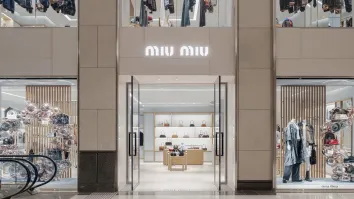
Chinese consumers shift spending priorities in 2025
There is a strong demand for quality, wellness, and meaningful experiences.
Chinese consumers are adjusting to a "new normal" in 2025, with a shift in spending priorities that requires businesses to adopt more precise strategies, according to a recent survey by AlixPartners.
Despite overall caution in spending, the survey revealed a strong demand for quality, wellness, and meaningful experiences. Gen Z consumers are redefining aspirations, whilst affluent seniors and middle-income urbanites are driving demand for both essential and discretionary goods.
“Whilst consumers are generally more cautious with their spending, our survey reveals that perceptions of economic prospects vary significantly by geography, income, and age group – differences that have profound implications for their spending," said Lisa Hu, partner and managing director of Greater China Lead for the Consumer & Retail Practice at AlixPartners.
"To thrive in this new era, businesses must go beyond a broad-based approach and demonstrate agility, innovation, and a sophisticated understanding of target customer behavior across categories,” she added.
The survey found that 41% of consumers plan to spend more on health-related products such as supplements and traditional Chinese medicine, whilst over 40% of young consumers intend to increase travel spending in 2025. This focus on wellness and experiences is also reflected in growth in spending on dining, entertainment, and cosmetics.
Meanwhile, the luxury sector is seeing renewed interest from high-income consumers in major cities but short-term growth remains cautious, with a preference for value and sustainability over high-ticket purchases.
Brand loyalty is also shifting as price sensitivity and product functionality now drive brand-switching. Recommendations from friends and family also play a key role, whilst the origin of products is less important. Categories with longer product lifespans, such as luxury goods, tend to have stronger loyalty, but loyalty in saturated categories like food and apparel is more fleeting.
Despite the rise of new sales channels like social e-commerce and livestreaming, traditional e-commerce platforms remain dominant, with over 60% of purchases for categories such as travel, entertainment, and beauty occurring online.
Consumers also use multiple platforms for research, with 21% using Tmall/Taobao and 14% using Xiaohongshu for beauty and cosmetics information.

















 Advertise
Advertise







